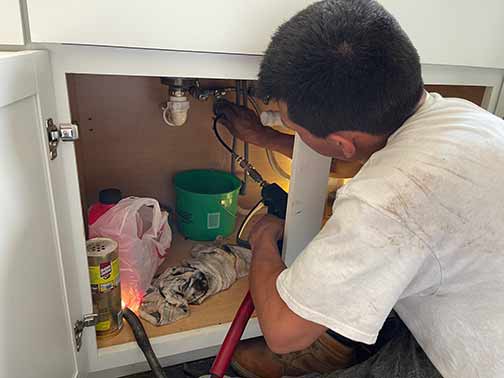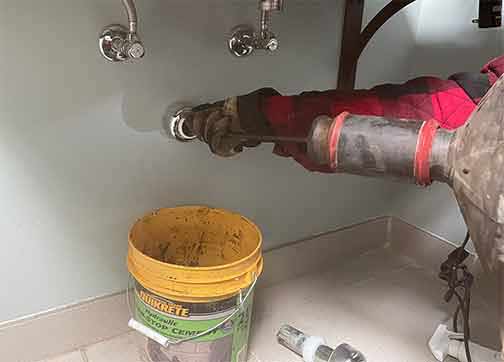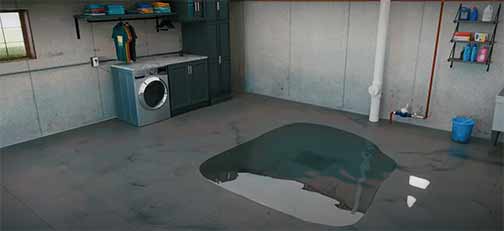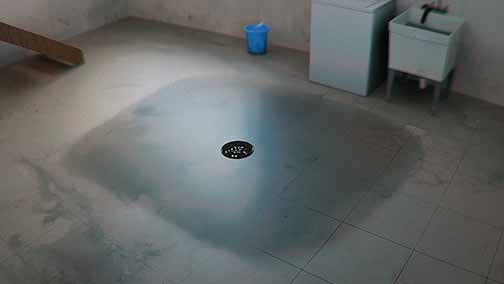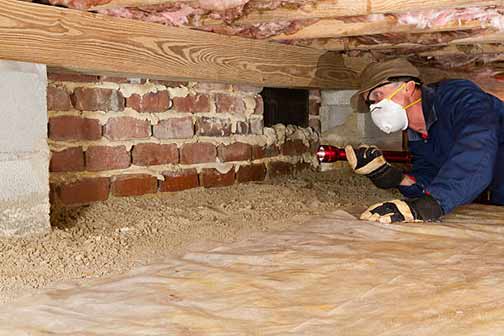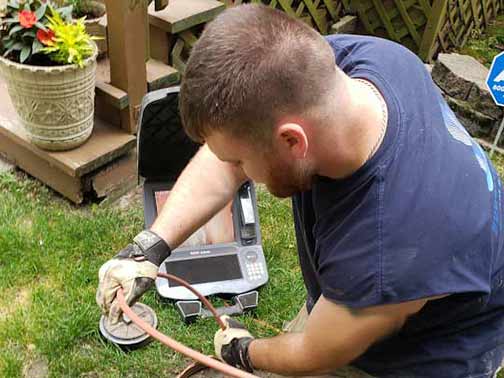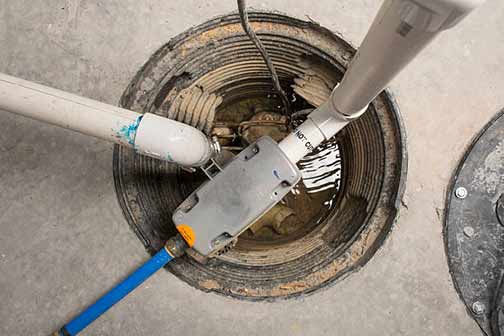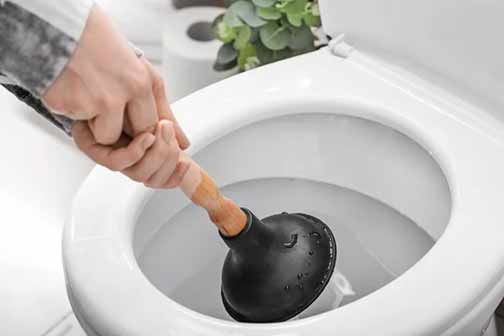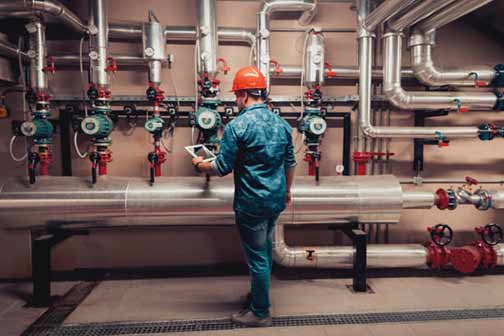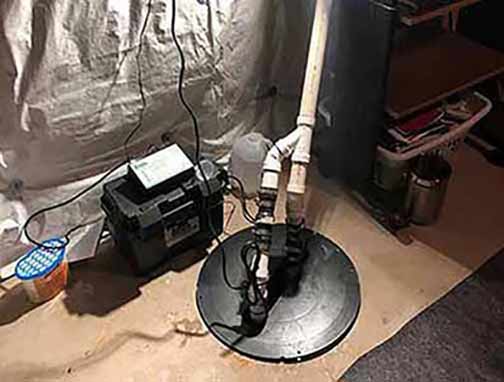
As a Chicago homeowner, maintaining a reliable sump pump is essential to protecting your basement and home from water damage. With the city’s high water table and frequent heavy rains, a faulty sump pump can lead to severe problems. Below we get into the top signs that indicate it’s time to replace your sump pump. By understanding these signs, you can take proactive steps to ensure your home remains safe and dry.
Significant Increase in Runtime: When Your Sump Pump Runs Longer Than Usual
One of the first signs that your sump pump may need to be replaced is a significant increase in its runtime. If you notice that your pump is running longer than usual to remove the same amount of water, it could indicate that the pump is struggling to keep up with the demand. This could be due to wear and tear on the pump’s components, reducing its efficiency and effectiveness. In such cases, it’s wise to consider replacing the pump before it fails completely.
Frequent Cycling: When Your Sump Pump Turns On and Off Repeatedly
Another sign that your sump pump might need replacement is if it frequently turns on and off. This problem, known as frequent cycling, can be caused by several issues, such as a faulty float switch, a malfunctioning check valve, or even an improperly sized pump. Frequent cycling can put additional strain on the pump, leading to premature failure. To avoid potential water damage, it’s essential to address the root cause and replace the pump if necessary.
Unusual Noises: When Your Sump Pump Emits Strange Sounds
A normal sump pump should operate quietly and efficiently. If you hear unusual noises such as grinding, rattling, or thudding, it may indicate that the pump’s motor or other internal components are failing. These sounds could be a sign of worn-out bearings, a damaged impeller, or debris trapped inside the pump. Ignoring these noises can result in complete pump failure, so it’s crucial to investigate the source of the sounds and consider replacing the pump if needed.
Visible Rust or Corrosion: When Your Sump Pump Shows Signs of Wear
Over time, sump pumps can develop rust or corrosion, especially if they are exposed to water with high mineral content. Visible rust or corrosion on the pump’s housing or components is a clear indication that the pump is deteriorating and may not function properly. A corroded pump is more likely to fail when you need it the most, so it’s important to replace it before it reaches that point.
Inconsistent Performance: When Your Sump Pump Fails to Activate
If your sump pump fails to activate consistently, it may be time for a replacement. Inconsistent performance can be caused by electrical issues, a faulty float switch, or a failing motor. When your pump doesn’t activate as it should, water can accumulate in your basement, leading to potential damage. To ensure your basement remains dry, it’s vital to have a reliable sump pump that activates consistently when needed.
Age of the Pump: When Your Sump Pump Reaches the End of Its Lifespan
Like all mechanical devices, sump pumps have a limited lifespan. On average, sump pumps last between 7 to 10 years, depending on usage and maintenance. If your sump pump is approaching or has exceeded this age range, it’s a good idea to consider replacing it proactively. An older pump is more likely to fail, and replacing it with a new, more efficient model can provide peace of mind and better protection for your home.
Frequent Power Loss: When Your Sump Pump Loses Power Regularly
If your sump pump experiences frequent power loss, it may be a sign that it needs replacement. Power loss can occur due to electrical issues, such as a damaged power cord or faulty wiring. Additionally, if your pump is not connected to a backup power source, it may fail during a power outage, leaving your basement vulnerable to flooding. To ensure continuous protection, consider upgrading to a sump pump with a reliable power source and install a backup battery system sump pump.
Pump Doesn’t Start Automatically: When Your Sump Pump Fails to Engage
Your sump pump should start automatically when the water level in the sump pit rises. If the pump fails to engage automatically, it could indicate a problem with the float switch, electrical connections, or the pump itself. Manual intervention should not be necessary for a properly functioning pump. To prevent potential water damage, it’s essential to address this issue promptly and replace the sump pump if needed.
Water Damage in Basement: When Your Sump Pump Doesn’t Prevent Flooding
One of the most obvious signs that your sump pump needs to be replaced is if you notice water damage in your basement. A sump pump is designed to keep your basement dry by removing excess water from the sump pit. If your basement is flooding or showing signs of water damage, it may be due to a malfunctioning pump. In such cases, replacing the pump is crucial to protecting your home from further damage.
Electrical Issues: When Your Sump Pump Experiences Electrical Failures
Electrical issues can significantly impact the performance of your sump pump. If you notice that your pump frequently trips the circuit breaker, has trouble starting, or experiences other electrical failures, it may be time for a replacement. Electrical problems can indicate that the pump’s motor is failing or that there is a problem with the wiring. To ensure reliable operation, it’s essential to address any electrical issues and consider replacing the pump if necessary.
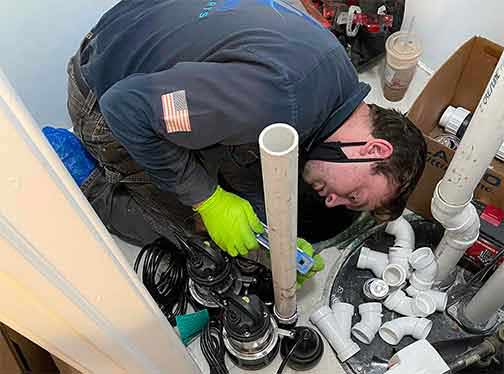
Experienced plumbers and sump pump specialists can assess your system, recommend the best course of action, and install a new pump if necessary.
Backflow Issues: When Water Flows Back into the Sump Pit
Backflow issues can occur when the check valve on your sump pump fails, allowing water to flow back into the sump pit after being pumped out. This can cause the pump to work harder and run continuously, leading to increased wear and tear. If you notice backflow issues, it’s important to inspect the check valve and replace the pump if needed to prevent further problems.
Regular Maintenance: The Importance of Routine Checks and Servicing
Regular maintenance is essential to keeping your sump pump in good working condition. Routine checks and servicing can help identify potential issues before they become major problems. It’s important to clean the sump pump and pit, inspect the pump and its components, and test the system regularly. Regular maintenance can extend the lifespan of your pump and ensure it operates efficiently.
Conclusion: Taking Proactive Steps to Protect Your Home
In conclusion, understanding the top signs that indicate it’s time to replace your sump pump is crucial for Chicago homeowners. By recognizing issues such as significant increase in runtime, frequent cycling, unusual noises, visible rust or corrosion, inconsistent performance, and more, you can take proactive steps to protect your home. Regular maintenance and timely replacement of your sump pump can prevent water damage and provide peace of mind, ensuring that your basement remains safe and dry.
Consulting with Professionals: Getting Expert Advice and Support
If you are unsure about the condition of your sump pump or need assistance with replacement, consulting with professionals can provide valuable support. Experienced plumbers and sump pump specialists can assess your system, recommend the best course of action, and install a new pump if necessary. Their expertise can help ensure that your home is well-protected from water damage.
Choosing the Right Sump Pump: Factors to Consider
When it comes time to replace your sump pump, choosing the right one is essential. There are several factors to consider, including the pump’s capacity, horsepower, type (submersible or pedestal), and features such as backup battery systems. Consulting with professional Chicago plumbers and conducting thorough research can help you select the best pump for your needs, providing reliable protection for your home.
Staying Informed: Keeping Up with Sump Pump Technology
Sump pump technology continues to evolve, with new models offering improved efficiency, durability, and features. Staying informed about the latest advancements can help you make informed decisions when it’s time to replace your pump. By keeping up with sump pump technology, you can ensure that your home is equipped with the best possible protection against water damage.
—
